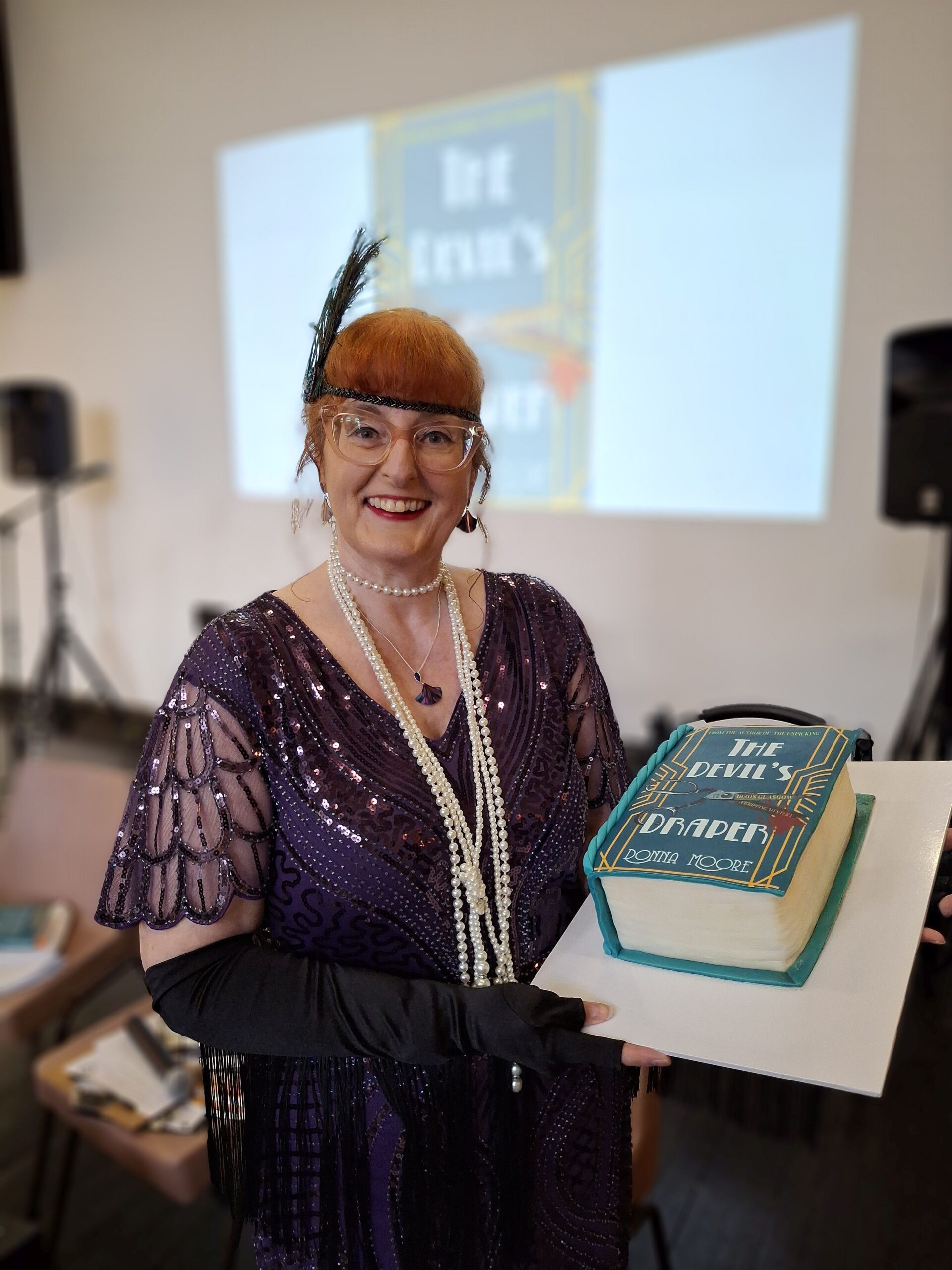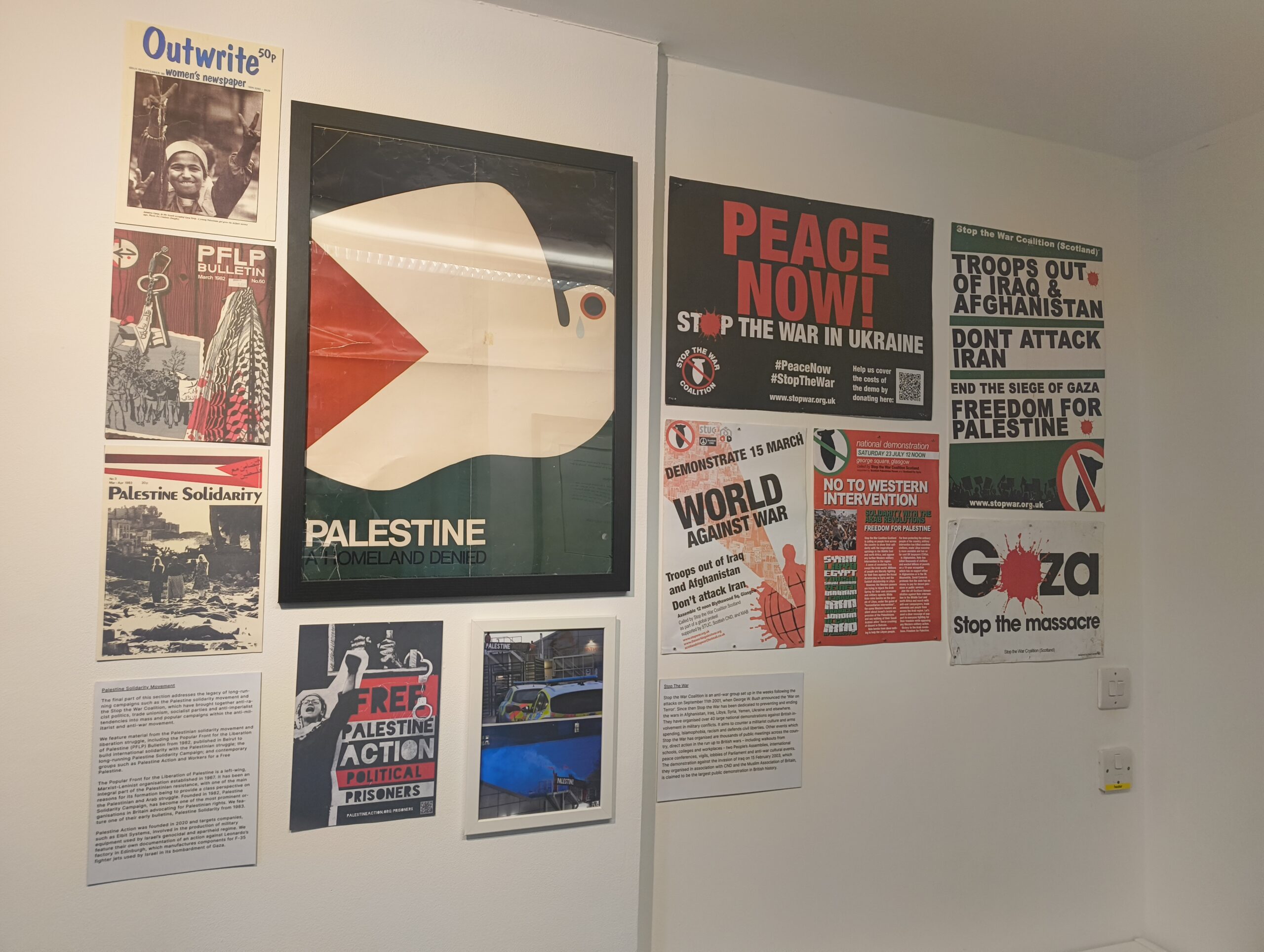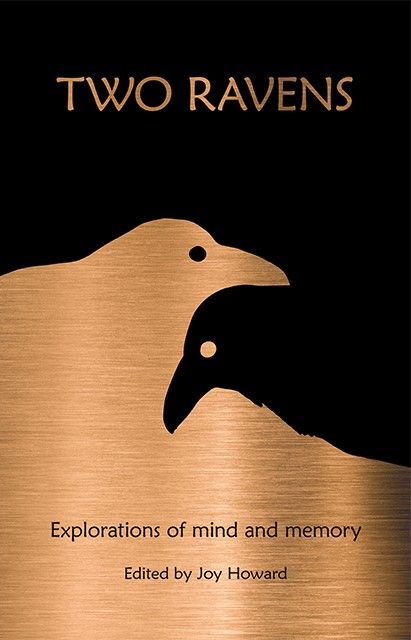The archive at Glasgow Women’s Library holds almost the complete run of the Edinburgh Women’s Liberation Newsletter, and I am continuing to study the newsletters as part of the Research Placement section of my Gender Studies Masters at the University of Stirling. Although the newsletters are broadly similar in format over the two-decade course of the run, the content and its focus can vary widely. The newsletters are perhaps most useful as a resource revealing the aims and self-perception of the Edinburgh Women’s Liberation Movement, and its continuing focus on self-expression and debate.
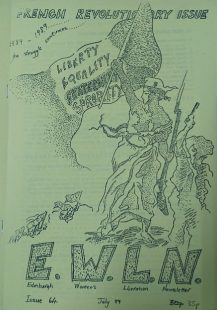
The July 1989 issue of the newsletter serves as a useful example through which to examine these themes. The ‘French Revolutionary Issue’ celebrates the 200th anniversary of the beginning of the French Revolution, and the front cover directly links the feminist movement with the historic revolutionary struggle, albeit with a focus on ‘sorority’ instead of ‘fraternity’. This is an interesting analogy, particularly in the context of the political landscape in Britain in the late 1980s.
In 1988, Section 28 was enacted, and began to affect the UK LGBTQ community’s ability to organise, politically and socially, in case they were accused of ‘promoting homosexuality’. For the Edinburgh community, this manifested itself in several ways, some of which are recounted in the July ’89 issue.
An article entitled ‘Section 28 arrives in Edinburgh’ details the denial, by the Edinburgh District Council, of a grant application which was to help fund a ‘Lark in the Park’ event, organised by the Scottish Homosexual Action Group. The council came to the decision after consulting a Q.C. who advised that funding the event would constitute a breach of Section 28. Although the event went ahead (it was held on the 27th of May 1989), the concerns raised by S.H.A.G. were that this decision would establish a precedent which would massively disadvantage the Edinburgh LGBTQ community. As the article states, “the group feels that the decision taken on June 16th affects the future funding of all lesbian and gay groups in Edinburgh”, and also that the vague wording of the legislation had led to it being applied more liberally than it was originally intended.
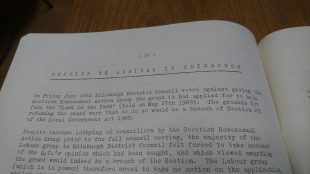
Additionally, activist group ‘Dorothy and Friends’ grant application for funding in support of a screening of four lesbian films was indefinitely delayed by the Council, apparently due to Section 28. The event still happened due to a grant from the Women’s Network, however, the lack of access to council resources for LGBTQ groups presented a severe threat to the ability of these groups to organise social events, vital for establishing communities and support networks in marginalised groups.
This issue provides a starting point for those looking to research the impact of Section 28 in Edinburgh, and institutional discrimination against LGBTQ organising and activism. Looking at later issues may also illuminate the ongoing response by Edinburgh’s LGBTQ community to the legislation.

